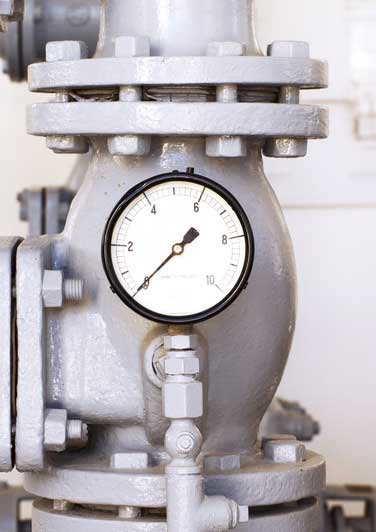Having low water pressure is a common problem, although annoying. Whether trying to run water for a shower or bath or washing clothes, having no pressure causes problems. Although this could be caused by a main water line break, more than likely low water pressure is the result of debris in the water, a buildup of mineral deposits, a water leak, or a problem with water valves or pressure regulators.
Clogged Drains
Often, low water pressure is the result of a clogged drain. If a home has older pipes made from iron, debris like rust can break free and become lodged in the pipes. Aerators, valves, and other areas along the pipeline become clogged, causing water to flow slowly.
However, algae are also a common problem. When a certain amount builds up in pipes, it resembles fine sawdust, which quickly accumulates and creates clogs. Other possible reasons for clogged pipes include broken off pieces of plastic from an old water heater and small pieces of plastic plug fixtures.
No matter the reason, if water pressure is low, this is the best and least expensive place to start. For instance, if pressure from a sink is low, the aerator can be removed to see if that helps. If not, the shutoff valve needs to be closed so the faucet and/or pipes beneath the sink can be removed. If the clog is not found, a professional plumber will need to be called in to help.
Pressure Regulator
This device is bell-shaped and located below the hose connection at the front of a property, although it might be located somewhere else. If the regulator has gone bad or stopped working for any reason, water pressure would be affected. Although this might seem like an easy fix, replacing or repairing a regulator is a big task that needs to be performed by a licensed professional.
Water Leak
If water pipes become damaged, separated, or cracked, leaks develop. Initially, a water leak may be insignificant, but eventually it will worsen to the point of causing noticeably low water pressure. Typically, this would be something best left to a professional plumber. It might be a good idea to have other pipes checked by the plumber as well.
Mineral Deposits
One other potential cause is a buildup of mineral deposits. This is especially common in areas with hard water. Minerals also cause faucets and showerheads to clog, lowering water pressure. Often, faucets and showerheads can be cleaned with a special product that dissolves mineral deposits. In addition, investing in a water softener might be a good idea.
